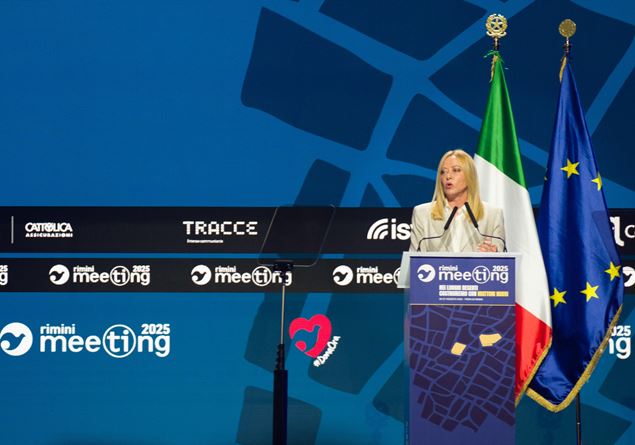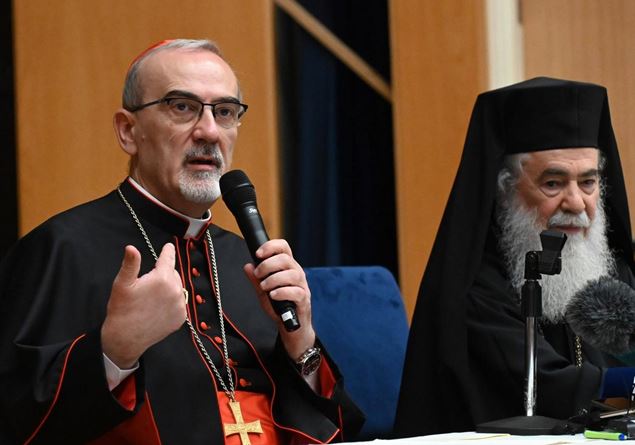A post like many, born to denounce the neglected state of the sidewalks in a central area of Lecco, has become a national case in a few days that has overwhelmed Alessandra Durante, councilor for the family, young and digital education of the city, at the Civic List Lecco list of the center -left junta of the Lombard capital –
The facts. On June 28 a public citizen in the Closed Facebook group “Lecco. Company and politics” – 2,296 members virtual community – Some photos showing the disconnected flooring in the Largo Montenero area, in stark contrast to the well -kept and flowery flower beds. “An aesthetic choice that ignores a much more urgent criticality,” wrote the author, with a bitter but civil tone.
The comments to the post multiplied quickly, between those who shared the complaint and those who considered it useless controversy. Among these, the intervention of a certain “stood outAnonymous582” – A mode that Mark Zuckemberg’s social network allows those who are registered and do not want to leak his identity, after the administrators, who in this case have granted the approval in this case. Anonymous 582 advised the citizen to use the Urban Click platform of the Municipality to report the problem, adding then:” He will see that his existence will be more useful so to disseminate Facebook of post from the constantly polemical tone Touch to read for years on this group.
Hard words, followed by other interventions always signed as “anonymous582”, in which the Facebook group was called a “vomitaio of personal thoughts and opinions”, and the author of the report accused of “taking citizens for idiots”. A lashing and sarcastic tone, which little suits a civil public debate.
But the real twist came the next day. One of the group administrators revealed the identity behind the nickname: it was Alessandra Durante, municipal councilor, with proxies on digital education and communication.
A controversial revelation, because the platform allows members to publish comments in anonymous form, but the administrators can still view the true identity. However, what they cannot do is disseminate those data without consent.
In the following hours, the controversy is exploded. In an open letter to an online newspaper in Lecco, the same Administrator of the group accused the councilor of having used personal insults and offenses, coming to define the “delayed”, “frustrated” citizen, “illiterate”. However, by scrolling through the comments that actually written by Durante, it emerges that these terms have not been explicitly used, although the tones have undoubtedly aggressive and unpleasant.
The case soon took on a political dimension. The center -right from Lecco – brothers of Italy, Lega and the Lecco civic list – accused the hypocrisy councilor, underlining how, less than two weeks by a public event against cyberbullying, she had abandoned herself to a behavior that “follows the mechanisms of hatred and aggression typical of the network”.
The replica of the direct interested party did not waitAnd. With three stories published on Instagram, during he admitted his responsibilities and apologize: «It is a duty that I make public apologies towards a citizen to whom I responded in a very domineering and rude way, also descending on the staff and making him anonymous. I do not bring any justification ».
The councilor then added: “I also apologize to all the citizens who have been working with me for some time or follow the work we are doing on digital, because they fell exactly in those behaviors that we analyze as to be limited or eliminated precisely from the social arena”.
Finally, on July 4th, resignation. The mayor Mauro Gattinoni ratified them, clarifying however that it was not a matter of “institutional cyberbullying”: “I have not accepted my resignation because Alessandra Durante is a hater or a bulla, but because the media denigration campaign (Shitstorm, in the language of social networks) has been deflected for citizens and for the press that has not verified the words actually used”. The first citizen has recognized the work done by the councilor in the last five years, praising the “meritorious” choice not to file a complaint despite the violations suffered.
The mayor of Lecco accepts the discharge of the councilor, but explains why it would not be a social bulla

The opinion of the jurist Ruben Racante: “serious violation of privacy, but politicians must put their face on it”
To understand the legal and cultural complexity of the case we collected the comment of the Professor Ruben Rachase, professor of information law at the Catholic University and among the highest Italian and privacy experts and author of the information and communication law manual (Wolters Kluwer edition)
Professor Racante, let’s start with the rules: what can and what can the administrators of the closed social groups do not do?
«The administrators can grant members of these groups to write content in anonymous form, that is, making comments as anonymous members. They can also, at any time, revoke this possibility. What they cannot do, however, is to reveal the identity of these members who have chosen not to be identified with name and surname, a right provided for by the policy of these private groups ».
So in the case of Lecco there was a violation?
«Absolutely yes. Allowing someone to express themselves as an anonymous member and then reveal his identity is a violation of privacy. The administrators had the duty, possibly, to delete those messages if they considered them offensive, but not to flare the identity of the person to the four winds ».
And what about the liability of the councilor?
«From a strictly opportunity point of view, it is clear that a representative of public affairs, especially if it deals with digital education, cannot hide behind anonymity. He must have the courage to express his opinions and take responsibility for it. So the councilor could have and had to reveal himself in his statements ».
There was also talk of defamation. How are things?
“Article 595 of the Criminal Code is very clear in applying the use of social networks the aggravating circumstance of the medium of advertising for the offenses to honor and reputation. If there had been defamatory phrases in the comments, the author – in this case the councilor – could have been reported. But the question is more complex ».
In what sense?
«If, as it seems, some heavy expressions attributed to the councilor in the group’s letter of the administrator have not actually been pronounced by her, then it is the councilor that could claim. It could safely report, pursuant to article 595, the administrator of the page for having attributed words never said and damaged the image of it “.
The case also highlighted a media short circuit …
“Unfortunately yes. Journalism today chases sensationalism. The journalists who told the story stopped at the group’s outburst, without carefully checking the contents. This fueled a media storm on partially unfounded bases ».
An episode that becomes lesson
The case of Lecco is not only a local quarrel, but an emblematic example of the contradictions of the digital arena, where verbal aggression often mixes with imprudence, and privacy can be violated in the name of an alleged transparency. The choice of the councilor while taking a step back without appealing to the legal streets, and that of the mayor Gattinoni to distinguish between human error and public pillory, open a glimpse of reflection: On the net, more education is needed, but also more responsibilities on the part of those who manage and administer virtual spaces.
Because, as Razzante himself recalls, “the freedom of expression is sacrosanct, but cannot be separated from respect for the rules and dignity of each”.
Cover photo © Facebook, intervention on the social channels of the Alexandra councilor during











